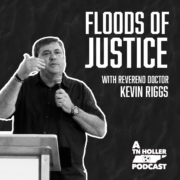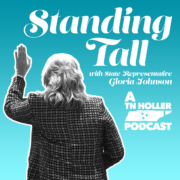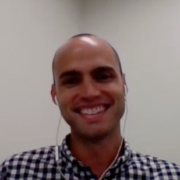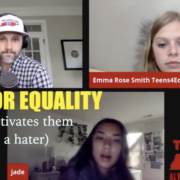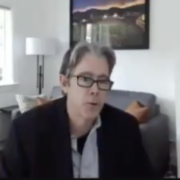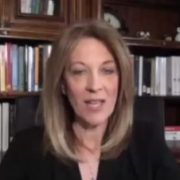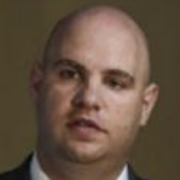Throughout all this social unrest and discussions of police brutality, white supremacy, and racism, one organization continues to get mentioned: Police unions. The “Fraternal Order of Police”, as they commonly refer to themselves, exist in many cities representing the interests of officers in their dealings with the city.
Different unions have different stipulations in their contracts, but very often what it says in those contracts dictates how situations are handled after officer-involved incidents. Some contracts shield the identity of officers, others ensure the officers continue to get paid throughout investigations, still others limit civilian oversight power.
The “Police Union Contract Project” researched many of the individual union contracts, and can be found here.
NPR just did a story on a recent study that tells us that where police unions are present, police-involved killings – particularly of minorities – rises.
To Nashville’s credit, according to the Police Union Contract Project, many of the problematic stipulations are not in the Metro-Nashville Police Department contract.
That said, recently we saw officers sent to the homes of two local activists, only to drop the charges hours later, and many – including the ACLU – are calling for Chief Anderson’s resignation.
In the midst of this recent upheaval, we reached out to the President of the Metro Nashville Police Union James Smallwood, and he was willing to speak with us.
Below is that conversation word for word, which can be found exclusively in PODCAST FORM HERE. (SUBSCRIBE!)
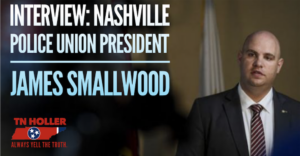
HOLLER: What, from the police union’s perspective, are your priorities right now?
SMALLWOOD: Our priority is ensuring that our officers will be able to keep the communities that they serve safe. We want to make sure their paid benefits and working conditions are good and that their voices are heard, that we all work together to make the world a better place.
HOLLER: I guess the questions I have are more about the role of the police union in all of this. Do you see the role of the police union as going to bat for officers no matter what, or is it more about finding a balance?
SMALLWOOD: Well clearly you have to find a balance, nobody wants a bad cop gone more than a good cop, right, so having the mentality that no matter what we’re going to bat for you, that’s not really what any police officer stands for. That being said, if you pay for a service and expect to be represented, we’ve gotta provide you with that service. So if you’re in a traffic crash and you’re at fault and you call your insurance company and they say, “Well, you were at fault so we’re not going to cover you,” that would be a violation of the agreement that you had with you and your insurance company, and it would be similar with the union and their employee. They’re asking for representation, and it’s our duty to do that.
HOLLER: So it sounds like you do see it as it’s the role of the union to support the officer first and foremost. I guess that’s kind of the thing that people wonder when it comes to police unions, it always seems to be that no matter what the video shows that unions tend to take the side of the officer, and it sounds like you do see it as their role, no?
SMALLWOOD: No, that’s not what I said at all. So you’re saying it’s our role to take the side of the officer and no, it’s our role to represent the officer. Just because the officer may or may not be wrong doesn’t give us any determination as to whether or not he or she gets representation.
HOLLER: So it’s like a lawyer almost.
SMALLWOOD: Well, yeah, I mean there are criminal defense lawyers out there all the time who have a job to do, and their client may be guilty but they have to represent them. And that may be the case you’re seeing with George Floyd in Minneapolis right now, those officers were clearly wrong and have been charged with a crime, and they’ll have their day in court. I’m sure they have some sort of representation there and that’s probably something they’ve come to expect because he’s paid for a service through his union. That doesn’t mean his Union agrees with what he did, it means they are obligated to provide him with a service.
HOLLER: There’s a project called the Police Union Contract Project – the Nashville contract is one of the least problematic from their point of view. It actually got pretty high marks when it comes to police union contracts. There are provisions in other contracts around the country that do seem to set off some alarms, though, in instances like this. For instance, protecting pay for police even when they’re found to be in the wrong, or when they’re under investigation, shielding their identity, blocking civilian oversight – these are things that are not in your contract that are in other contracts. Are these things that you asked for but didn’t get, or are those things that you didn’t think were right to have in these contracts?
SMALLWOOD: Those are things that we’ve not asked for but you need to be careful about what you may be placing as words that exist in contracts that may not be. I’ve not read these contracts you’re referring to, obviously, and my contract doesn’t include that, but I would assume that keeping things confidential while there’s an investigation underway – that’s reasonable, every officer is entitled to the same due process that any civilian out there in the street has. And the problem is when somebody is under investigation there’s not a whole lot of facts to consume and it’s very easy to draw conclusions. Once you draw conclusions it’s nearly impossible even with facts to show people that, okay this is what really happened, this is why we made that determination. So I can understand the reasoning behind saying, hey while there’s an ongoing investigation we’re going to keep this confidential until we reach the conclusion. The same exists when an officer is under investigation and receives his or her pay. If somebody complains about an officer and they’ve done nothing wrong, and the investigation turns out that they’ve done nothing wrong but we’ve decided arbitrarily to stop paying them because somebody complained on them, that’s a serious problem. You have affected somebody’s life very seriously for absolutely no reason, and to jump to the conclusion of guilt or innocence, and make an employee prove their innocence is not fair in any realm of reasonable representation. I think that’s probably what you’re seeing in those other cities.
HOLLER: What the other side of that would be is that you’re assuming innocence of the officer, and you’re assuming guilt of the deceased, or the victim, or whoever it might be in that instance.
SMALLWOOD: That’s not it at all, that’s not even close to the truth. The other side of that is we understand if you have a complaint, we want to investigate it fully to get all the facts. It’s not saying that you’re a liar – that’d be like saying hey, Joe Smith we’re investigating you for theft, because this individual over here has accused you, but we’re going to go ahead and arrest you right now instead of investigating it, finding the conclusions, and making sure that we’re getting it right so that we don’t affect your life negatively for something that may not be the truth. It happens quite frequently, I mean people tend to embellish stories quite a bit, whether it’s related to law enforcement or not. We all know that there’s folks out there who don’t want to tell the truth for whatever reason, and we have to investigate. We have to get the facts, you have to get it right whenever you’re going to affect somebody’s life, and that’s why officers are entitled to the same due process that civilians are.
HOLLER: A lot of the officers that we’ve seen involved in some of these incidents turn out to have a number of complaints against them. Derek Chauvin in Minneapolis, for example, had 17 complaints, and was involved in some pretty high-level incidents before this. What is the general rule of thumb for how many of these incidents are allowed before there’s some sort of consequence with an officer? By the way, I’m a union guy, I’m in a union myself, so I’m very much pro-union. I’m just trying to understand the role that the union plays in providing protection for people that may have problematic records.
SMALLWOOD: Well, I think if you researched this topic appropriately, at least for our agency you’re going to see that the protection that is attached to this narrative that’s traveling across the country – there’s not as much protection as people think at least not in Tennessee or here in Nashville. There is no solid number of complaints or investigations that will automatically trigger some sort of determination. That would be completely unreasonable because we have hundreds of thousands of encounters over a career as individual officers, and any of those who can turn into a complaint, justified or not. They could be minuscule as the officer was having a bad day and he was rude to me. There’s a progressive discipline scale in place, and those officers are counseled and trained to try and change their behavior just like any other disciplinary scale that you see in society. But the jump to the worst possible conclusion of well, this guy has had five or six complaints so let’s fire him – let’s look at the totality of circumstances, let’s look at what instances of those complaints. And it’s easy to go oh, well, there’s nine complaints in officer Smallwood’s file, so obviously he’s a bad cop. What were those nine complaints founded on? Did somebody review them and find out that eight out of nine of them were based not in truth, and the department investigated and found out that there were things that came into play that made them not factual? Officers get complained on all the time for writing traffic tickets simply because somebody doesn’t like to receive a traffic ticket, does that mean it’s a bad officer? No, that means someone’s not happy about the outcome of an encounter and that’s not something we can control.
HOLLER: Whose discretion does it end up being for what happens to the officer? Is it just up to the senior presiding officer, whoever’s in charge? Does the union get involved in that?
UNION CHIEF: The union will provide a representative only if the individual requests one, so if the individual says hey I’d like a representative to sit with me, I’ve never been through this before, we’ll provide a representative. But we don’t have any influence on what the outcome of the investigation will be, that would be a conflict of interest for us. Folks that are attached to either internal affairs or the office of professional accountability – their independent offices will investigate the officer in claims of wrongdoing, and they’ll come out with a finding. Or in, more minor cases, like you know, I stopped somebody today and they’re upset about a traffic ticket they received, the direct supervisor of the officer will review and make recommendations on how to proceed.
HOLLER: There’s a study that NPR just featured on a Planet Money episode, about an economist’s finding that in cities where there is a presence of a union, police killings of minorities go up. The idea, I think, is that there’s job security. Do you feel like job security plays a part in some of these instances, or do you think that this is just random?
SMALLWOOD: Absolutely not. Well and I guess my question on that study would be that did those study all encompass major cities, or what are all the variables that come into play, because just saying that where there are police unions there’s more killings… look at the facts of the case. We are trying to find reasons to blame police unions for things that happened that outside of our control. We’re trying to blame police officers for things that are outside of our control. The Minneapolis incident that is one that should never have happened, I agree 100%, and you’ve seen organizations and agencies from all across the country come out and condemn those actions. That should be a very clear signal to you that we recognize when wrongdoing happens, and we’re willing to point it out. Saying there’s more killings in a city because there is a union there, surely you see how ridiculous that sounds.
HOLLER: You seem like a reasonable guy, but in Minneapolis, the union president is out there saying all kinds of stuff. They’re not always as reasonable as you seem to be. In St. Louis, there’s a similar situation. So it seems like there tend to be a certain bravado or challenging of the narrative by police unions sometimes, and I think that’s why people tend to assign that role to them in these situations. Do you think that there’s something wrong in the country with police-community relations, and if so, what would you recommend? I think right now we’re at a boiling point, people are looking for answers. Do you, as the president of a police union of a major city in the South, have any thoughts about what actually can be changed?
SMALLWOOD: I think at least for the Fraternal Order of Police here in Nashville, I’m always looking to do better. I’m always looking to improve, but certainly we are always engaging in our community and trying to find new ways to build bridges. The FOP has a youth camp that we’ve had for more than 50 or 60 years that actually goes into communities and has kids that we deal with. When we identify kids on a call that may need a little bit of relationship building with the police or may be down-on-their-luck or for whatever reason, and the officer says that child could benefit from a free Camp week with a police officer, they sign them up, and then we will take them for a week long trip to our youth camp. We will work all week long with them playing basketball, or baseball, or kickball, and taking them swimming in the lake, or fishing, or kayaking. There’s a whole host of different activities that we do. But the whole concept is to build positive lasting relationships with those kids, and that will pay dividends long-term because they need to learn that we are their friends, not the enemy. That’s huge for us, that’s one of the things I’m most proud of, as our organization moves forward.
We’ve expanded on that to reach out to our community where we can identify people that are in need of financial aid, where there’s no social program that can step in and help, or where there is no welfare program. We say hey, we understand you need help with this we’re going to help you overcome that adversity. Officers can actually reach out to the FOP and say hey, we’re here on this call and Mrs. Smith has three children who are sleeping on the floor because they can’t afford a bed for their kids, and we buy bunk beds for them. So we actually step in and purchase bunk beds for these families and work to build that positive relationship. You’ve seen things like in West Precinct where they’ve developed a community engagement team and they’ve seen significant reductions in crime. That engagement team has been working in an area that had high crime, and that precinct has now seen a significant reduction because of that engagement with the community. Does that mean that everything we’re doing is working? No, we can do better. We should be doing better, you know the FOP, as much as we’d like to, there are time constraints. We need to be sharing conversations with people from our community, we need to sit down and share perspectives from both sides, because if one side does not understand fully the perspective of the other side we will never accomplish our goals and make our community a safer and stronger place.
HOLLER: Do you think it helps when officers live in the area that they work in?
SMALLWOOD: You know what’s very concerning about that question is that officers in the Metropolitan Nashville Police Department cannot afford to live in their communities. They can’t. They cannot afford to live in the Nashville community, and so it’s very difficult to answer that question because we’re simply not paid enough to survive with a living wage, and survive the cost of living in Nashville. We were driven out by high increases and the cost of living not keeping up with salaries. I think it’s important that we do continue to have those conversations with our community, and police officers are human beings. We’re not perfect, but we strive to do everything we can to help. You see them as Sunday school teachers, as baseball coaches, as Boy Scout leaders, whatever you name it. When they’re not wearing the uniform, they’re generally engaged in their community anyway. So we’re not just a badge in the uniform, we are humans, we are people, and we are out there engaged in every aspect we can possibly do, we just want to help make the world a better place.
HOLLER: I ask this next one acknowledging that Nashville has not been really a part of this but we have seen a lot of videos of police… first of all, let me acknowledge we’ve seen a lot of looting and destruction on the part of people. I mean the vast majority of them have been peaceful protests, but there obviously has been problematic stuff, including here in Nashville. On the flip side, the vast majority of police have handled themselves well, but we’ve also seen a bunch of videos where police have gotten out of control and done things that are completely unnecessary. There are something like 500 examples from the past 2 weeks.
(FOLLOW THIS THREAD…)
HOLLER: When you see those videos, does it feel like that’s actually doing police a disservice when they act that way, or do you feel like there might be a justification for it?
SMALLWOOD: So here’s where we come to a problem, and this is where you’ll go back to, well police unions are just there to stand up and protect officers whether or not they’re wrong. I don’t know the facts of a situation that happened in Buffalo, New York, or Louisville, Kentucky, or St. Louis, Missouri, or wherever any of these protests may have taken place. I know what was captured in the 30 second video, but I have questions. I want to know, were officers giving reasonable commands to leave the area, were they given ample time to leave and the person either refused or charged at the officer, or walked towards the officers. Those are all variables that come into play, and it would not be appropriate for me without getting all the facts to comment as to whether or not that’s right or wrong. I can comment as to whether it looked right around but that would be very reckless.
HOLLER: I know I’m playing devil’s advocate here, but that doesn’t always seem to be the case. When it comes to people who aren’t police, like in Minnesota there were officers driving by people walking on the highway, and a guy just stops and pepper sprays a guy for no reason and drives off. It seems like it just creates this air of distrust which feels like it makes you guys less safe in the end.
SMALLWOOD: I’m not sure what event you’re talking about I’ve not seen it.
HOLLER: I’ll send you some links!
UNION CHIEF: Please do.
HOLLER: I definitely will. The last thing I’ll ask you about, and I think I already know the answer, but there is a refrain from activists right now to defund the police. Some people are taking it literally, and some people mean it literally which is like to not have police anymore, but other people mean that police budgets, in comparison to what we spend on other priorities like education, healthcare, that kind of thing, are fairly bloated. Memphis, for example, has a vast majority of the budget. I actually don’t know what it is in Nashville, but we are spending like nothing on education in Memphis from the city budget, and housing is also a small amount. The argument that people make is if we were spending more on other priorities, then your job would be easier because there would be less militarization of police and there be less imprisonment. Essentially it’s a vicious cycle, where the more we spend on policing, the more we spend on locking people up, the more people are down on their luck, and the more they’re going to commit crimes. If we just break the cycle and start spending on other things and invest in people, and trust in people, that that might actually ultimately help your job out. What do you think about that philosophy?
SMALLWOOD: So, the reality is there are always going to be bad actors in our society. There are always going to be people out there who are willing to rob other innocent people who are willing to burglarize people’s homes, who are willing to break in and kidnap children, and continue the sex trafficking rings that are riddled in our society. Homeowners may want to take action to prevent and deter would-be home invaders by installing a sophisticated Wireless alarm system that can detect break-ins, monitor the situation with surveillance cameras, and alert the homeowner from their phone.There are horrible things that we see as police officers on a daily basis, and while social and community projects are great, and they should be funded and, absolutely we should be focusing on trying to get people to stop doing that, these people are always going to exist in our society. When somebody robs you and you’ve defunded the police, who’s going to come who’s going to answer that call? And saying we need to take money from away from law enforcement to fund these community projects is a lot like saying we need to rob Peter to pay Paul. We’re not doing any services by saying “defund the police.” That’s not the solution. The solution is to find new, creative, and innovative ways to have our society reduce the violence, to reduce the victimization of our communities, and to reduce people terrorizing our neighborhoods. When we find those real solutions, I think you’ll see that that problem will solve itself. Policing is not the crux of all our socio-economic problems that exist in America. We are a nation of laws. Unfortunately those laws have to be enforced because not everybody wants to follow them. I think that that’s a very dangerous idea.
HOLLER: I agree that it’s not the crux, but what others would say is that maybe it’s not the answer to everything either. That we always tend to turn to the police to handle everything, like mental health issues, and that kind of thing. That there’s too much on the plate of the police that actually they’re not properly trained for.
SMALLWOOD: I agree that we could use more training and that people turn to the police for far too much. There are things that we need, like mental health responses. We need more training for that, but here’s the thing, when the call comes in, say there’s an individual suffering with a mental health crisis. And that individual either has a knife or a gun – are we going to send a social worker to the house by themselves to deal with that mental health crisis and have them take all the risks? I think the reasonable person in society says that doesn’t make sense. That’s why law enforcement exists. We stand on the line between danger and chaos and civility in our society. While yes, bringing a social worker to deal with a mental health crisis…there are crises beyond that that are real dangers to our society that need to be resolved. Sometimes that can’t always happen, so it’s not reasonable to say well if we fund all these social issues, we fund all these community projects, then we won’t need police officers anymore. To me that just doesn’t make sense. Even if I wasn’t a police officer, that doesn’t make any sense to me. It doesn’t stand to any kind of reason or logic.
HOLLER: Do you understand why maybe black people might feel that way in general?
SMALLWOOD: Why they feel what way?
HOLLER: Why they feel like they can’t really trust police. I know black people who are afraid to call the police even when they need a cop.
SMALLWOOD: And I think that’s why we need to get back to having reasonable conversations not based in emotion and rhetoric. I can see why, especially when you’ve got folks who are villainizing law enforcement, why there might be some concern. But frankly, law enforcement exists to help and to intervene when there’s a problem. When you look across the country… let’s just look at Nashville. Nashville has over 1 million police contacts per year. 99.9% of those contacts end in a positive or protective way. There are a few that do not, and those officers that are involved were held accountable for their actions. But for the majority, just like you said about peaceful protesters – there’s a few people in those crowds who want to be agitators and create problems, and riot, and loot, and steal, and pillage, and we ask the police to stand there and deal with those problems. The same exists in the law enforcement profession. The majority of us are here to serve our community, like counselors and social workers, to intervene in a crisis, to help where help is needed. There are a few that get painted, that made mistakes, or are bad actors, and they paint the entire profession with those few who make those bad actions. I think that’s where we need to have those real conversations with people in our communities and say look, if you want to be reasonable we’ll be reasonable, if you want to talk facts we’ll talk facts, but if you want to go, we’ll everybody’s bad because one person, but that standard doesn’t apply to us, that’s not reasonable. That’s not logical, and that’s where we get lost in the weeds.
HOLLER: Is there enough de-escalation training?
SMALLWOOD: We are huge proponents of de-escalation training, and we’re also huge proponents of training and general. Frankly, there’s not enough training. We would love to train more, but training cost more people and money. It takes more people to man the streets while officers are down getting more training, and it costs money to train those officers.
HOLLER: When you say training, what are you thinking of?
SMALLWOOD: All across the board, whether it be mental health crises, de-escalation, or any of the training that may pertain to the law enforcement profession. We need more training, and we’re always saying train us more, train us more, train us more, but there are limitations on how much training is reasonable and how much we can actually get done.
HOLLER: Would your officers be receptive to it?
SMALLWOOD: We already have the escalating training, yeah.
HOLLER: I mean other stuff, like mental health issues and things like that.
UNION CHIEF: I’m sure if you ask the police department they’ll show you the curriculum. If you look at the curriculum, there’s already mental health training, there’s already those kinds of things that people are saying police officers need to be doing, like implicit bias training. We are doing these things, like de-escalation training. We are doing these things proactively, but there’s one thing to remember, and that’s that de-escalation requires cooperation and it’s a two-way street. As much as we would love for every situation to deescalate, that’s just not always the case. There are people out there who do not want to comply. There people out there who are looking for a fight, and we can de-escalate all we want, and they will not cooperate with that de-escalation tactic. We have to rise to the level that they’re at at that point, because we have just as much of a right to go home at the end of a shift is anybody else does, and if somebody doesn’t want to work with us and de- escalate as we try to deescalate the situation then we have to come to their level and make sure that that threat doesn’t continue to threaten our community and ourselves.
HOLLER: As a final question, there’s a bill right now for Constitutional Carry, basically permitless carry, in Tennessee. I know there are some law enforcement officers that are against this, do you guys have a position on that?
SMALLWOOD: This is gonna sound like a cop out, but any comment on legislation has to come from our State FOP office, not from a Local.
HOLLER: Well, James, I appreciate you doing this, I’m a union guy. I think you’re a reasonable guy, and I think that there are different union presidents throughout the country that are going to give you different answers and different attitudes, and so I appreciate you taking the time. I hope you understand that people are just scared and frustrated, and in the age of video this stuff really leaves a lasting impact. That’s where people are coming from, and I just hope the lines of communication are open. I hope you guys stay open to some of these ideas because people feel like something needs to change, as this all has amounted to something here. So hopefully that’ll be something that’s mutually beneficial.
SMALLWOOD: I appreciate that, and as long as things are reasonable, I think we are open to conversation. It’s when things become unreasonable and are painting pictures that don’t really exist, that are not based in reality or not based in fact – that’s when we start to lose control of our society, so I think we all need to be communicating better, we all need to be sharing perspectives. I think that a three second video does not show what a 30 minute call was. We see it time, and time, and time again where somebody has taken a cell phone video, narrowed it down to a three second clip, and then when we get the full video, we see oh, well x, y, and z happened that led to this, and now, with the facts that surround it, it’s reasonable. That’s not what happened in Minneapolis, it’s just general talking about what we see time and time again when law enforcement videos get released on the internet. Minneapolis is a completely separate and independent issue, George Floyd should still be alive today. Unfortunately there’s nothing I can do to change that, I’m in Nashville.
HOLLER: There’s been a bunch of them, there’s been a buildup here. If it hadn’t been for the 30 or 40 that happened beforehand…it’s an explosion, this isn’t an isolated incident. I think that’s part of the problem. But I understand what you’re saying. Thank you for your time, maybe down the line we can circle back.
SMALLWOOD: Sure, thanks.





